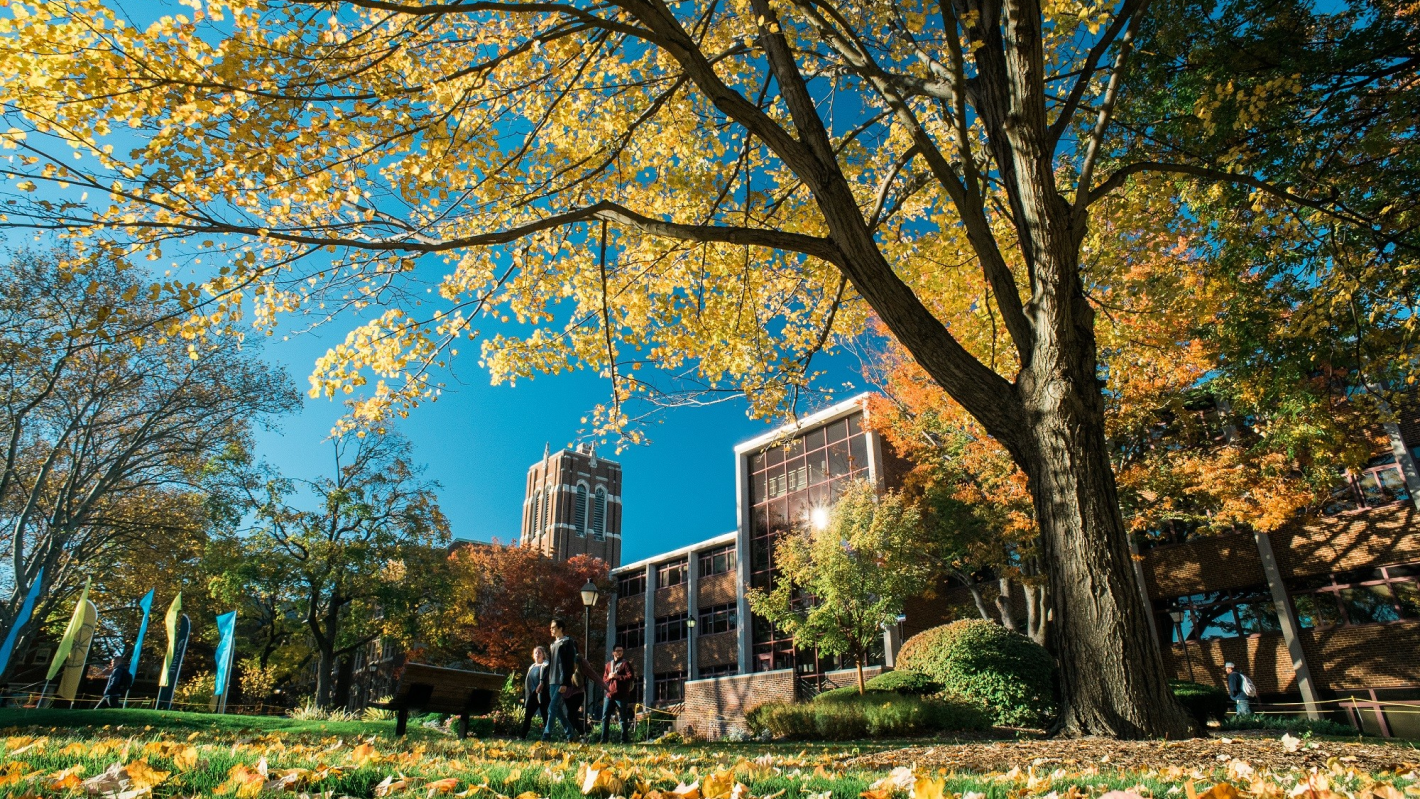La Salle University
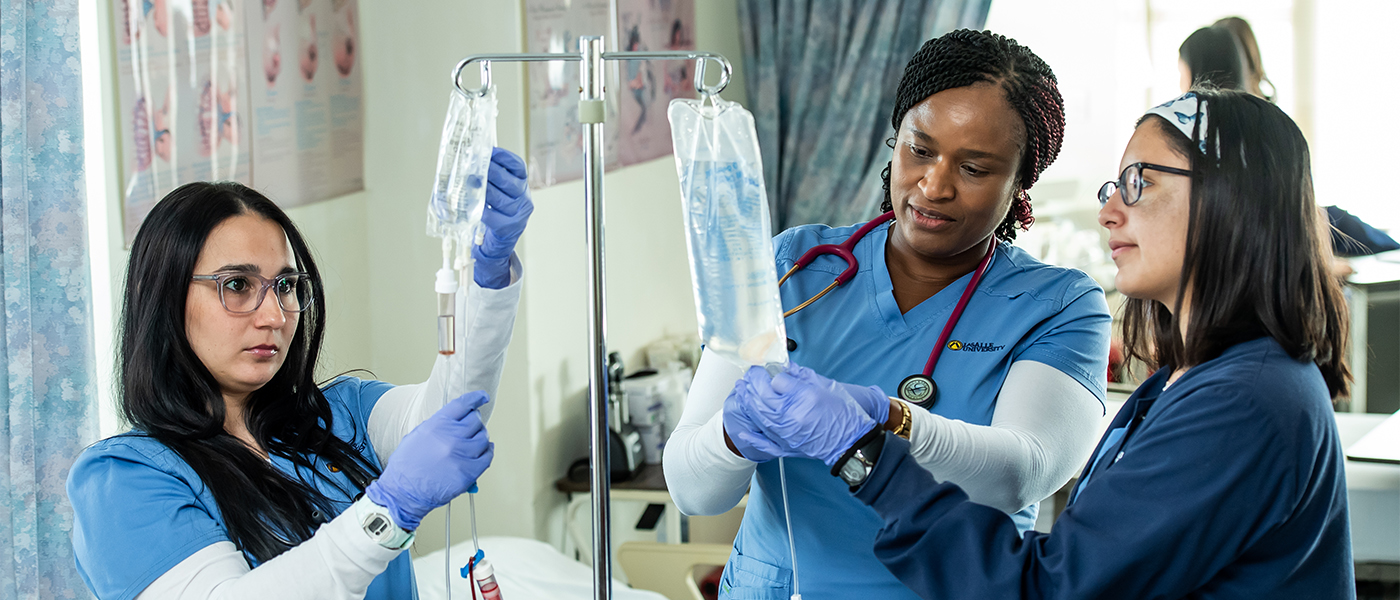
School of Nursing and Health Sciences
An interprofessional and evidence-based education that improves health outcomes everywhere.
With a focus on compassion and respect, we engage students in education, service, and research programs to prepare them to deliver the highest quality of care and serve diverse populations across professions. Our faculty are dedicated and experienced academics and healthcare professionals committed to serving others, and hands-on learning will offer students experiential opportunities in diverse clinical and community settings to complement classroom learning. As a student of the School of Nursing and Health Sciences, you’ll be among a community of students, alumni, faculty, and staff that are life-long advocates for the people they serve.
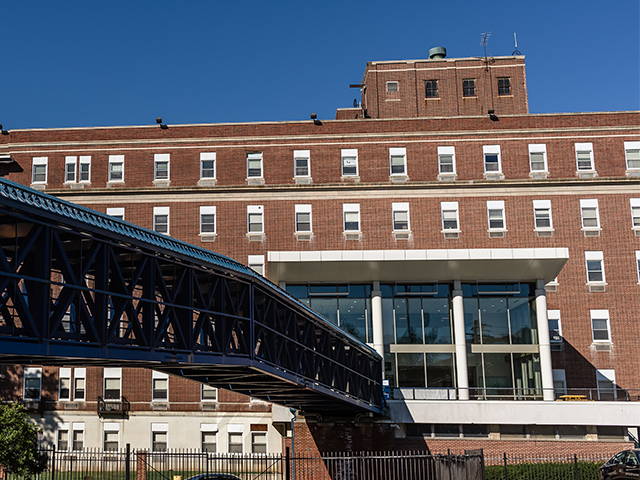
Explore Our Programs
No matter which path you choose, an education from the School of Nursing and Health Sciences will prepare you to become a proficient and caring health professional.
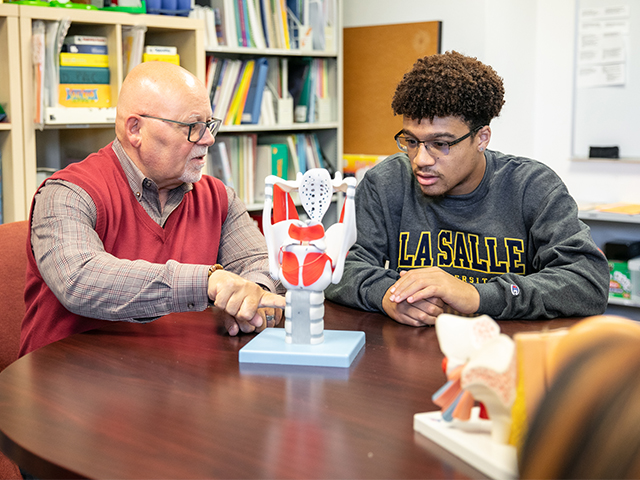
100%
employment rate for graduates from the Nursing program.
100%
of registered dietician students are employed within 3 months of graduation.
91.56% First-Time Pass Rate
for 2022 graduates on the National Licensure Exams (NCLEX) for Registered Nurses.
92.3% First-Year Pass Rate
for 2021 graduates on the registered dietitian nutritionists (RDN) exam.
Teaching and Learning Beyond the Classroom
Keeping with Lasallian tradition, we believe that all knowledge is practical and empowering and provide learning opportunities beyond the classroom that allow students to develop the skills they need to succeed in their professional lives.
Interprofessional Simulation Center
The Interprofessional Simulation Center prepares nursing students for real-life, evolving situations that they will encounter in their professions, and encourages the type of critical thinking the NCLEX-RN® exam assesses.
Nursing Learning Resource Center
The Nursing Learning Resource Center helps Nursing students sharpen their clinical skills and work with faculty to gain a hands-on experience and examine real-life scenarios. A tutoring and simulation space is outfitted with resources to supplement in-class instruction and give students extra assistance in putting into practice the content and skills they learn in their classes.
Speech-Language-Hearing Community Clinics
The Speech-Language-Hearing Community Clinics (LSU-SLHCC) provide Speech Language Pathology graduate students with clinical experience during their program while also supporting the surrounding community with diagnostic and therapeutic services to those with communication or swallowing disorders. Students receive one-to-one supervision from licensed and certified speech-language-pathologists as they provide diagnostic and therapeutic intervention across the entire spectrum of communication disorders.
Food Labs
Students in nutrition programs have the opportunity to gain practical learning experiences and explore health and dietary fundamentals in dedicated Food Labs.
Scholarly Activity
Our faculty, staff, and students have been excelling in and out of the classroom. Check out the latest updates.
Explorer Spotlight
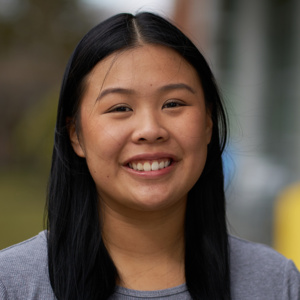
Stasia Nguyen, ’23
A student in our five-year accelerated nutrition program, Stasia is committed to breaking stigmas around dietetics and working with people to improve their relationship with food.
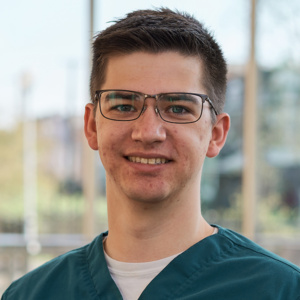
Michael Langmuir, ’21
With a passion in Pediatric care, Michael chose La Salle’s nursing program because he wants to make a difference in the lives of children and their families. Our nursing program gives students a foundational understanding, helping Explorers regularly exceed the Pennsylvania and national averages for first-time pass rates of their national licensure exams.
